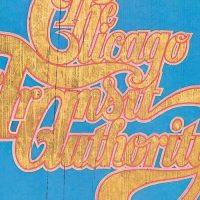Bill Champlin has a face to match his voice — rugged and sharp-edged, a great gravelly visage.
That never really meshed, to me, with the sappier fare that sold so well with Chicago in the late 1980s. He always sounded more authentic, in concert, singing the older catalog — stuff from back when the late Terry Kath’s torrid passions sat at the center of the band sound.
Listen to Champlin tear into a lyric on “Blues in the Night,” a high point on Chicago’s uneven 1990s big band project, and you’re struck by how closed off he sounds on hits “Look Away” and “I Don’t Wanna Live Without Your Love.” There’s always been more, much more, to Champlin — who joined Chicago with a notable, if not widely known, career of his own.
The Oakland native first found regional fame with the respected Marin County-based rock band the Sons of Champlin. He won a 1979 Grammy as co-writer of “After The Love Is Gone,” later a hit for Earth Wind and Fire; and a 1981 Grammy for “Turn Your Love Around,” a hit for George Benson. Sessions work included a long stint with Elton John.
Yet his solo work all but vanished, as Champlin toured with Chicago and occasionally with a reunited Sons group, until “Tuggin’ on Your Sleeve.” Champlin’s upcoming long player No Place Left To Fall isn’t slated for U.S. release until July on DreamMakers Music. But this initial cut is already available in Amazon.com, iTunes and other digital download sites.
Bill Champlin first overheard an early version of “Sleeve” when his son Will and Michael Caruso were working on it in the elder Champlin’s basement. He added a chorus, and moved a fun interlocking duet (featuring Bill on Hammond B-3 organ and Will at a Wulitzer electric piano) from the end to the beginning. The original chorus, with a lovable funky-chant homage to the James Brown Band, now serves as the bridge.
Will and Bill’s wife Tamara Champlin — both singer-songwriters in their own right — share vocals. Will inhabits the role of sweetly romantic Peter Cetera/Jason Scheff counterpoint during “Tuggin’ on Your Sleeve,” but with more grit than Chicago has managed on record in years. Their chugging, randy band is rounded out by Bruce Gaitsch (who earlier played for Madonna) on guitar, George Hawkins (John Fogerty) on bass and Billy Ward (B.B. King) on drums.
Meanwhile, Champlin – still known as one of Chicago’s new guys, though he joined in 1982 and was prominently featured on the 1984 hit “Hard Habit to Break” – finally strips away the David Foster-era strings and synths to find something lived-in and comfy: This home-cooked kind of soul.
A welcome surprise and, hopefully, a harbinger of more to come from Bill Champlin.
- Nick DeRiso’s Best of 2015 (Rock + Pop): Death Cab for Cutie, Joe Jackson, Toto + Others - January 18, 2016
- Nick DeRiso’s Best of 2015 (Blues, Jazz + R&B): Boz Scaggs, Gavin Harrison, Alabama Shakes - January 10, 2016
- Nick DeRiso’s Best of 2015 (Reissues + Live): John Oates, Led Zeppelin, Yes, Faces + others - January 7, 2016



I thoroughly enjoy No Place Left to Fall but at the same time find the album intensely frustrating… Bill was in Chicago for 28 years and was capable of this really brilliant music and Chicago painted him into a corner doing dime-a-dozen Diane Warren ballads or Terry Kath-aoke. He was and is so much more of a talent than Chicago ever really allowed him to be. His firing from Chicago was a blessing in disguise for him– he can finally stretch out and be all that he can be… whereas Chicago will continue chugging along playing SOS (Same Old S—t, not the mythic and heavily bootlegged Stone of Sisyphus album that took them nearly 15 years to release).